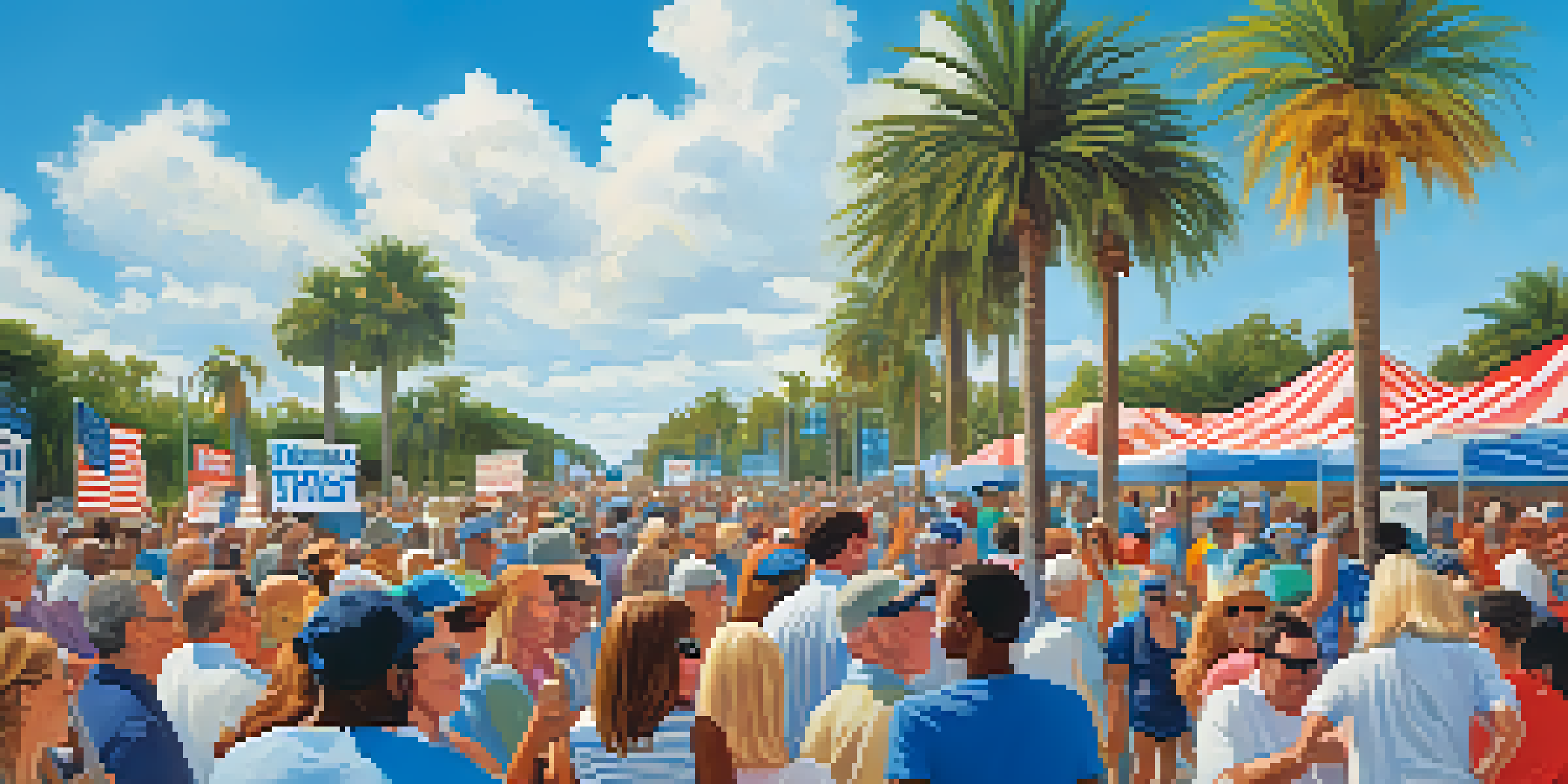The Impact of COVID-19 on Florida's Political Landscape

Florida's Political Climate Before COVID-19
Before the pandemic struck, Florida was known for its vibrant political landscape, characterized by a battleground status. The state had been a focal point for both Democrats and Republicans, showcasing a mix of urban and rural interests that fueled political debate. The 2018 gubernatorial election highlighted these divides, with candidates addressing issues like climate change and healthcare. Understanding this backdrop is essential to grasp how COVID-19 would later shift priorities and voter sentiments.
Initial Government Response to the Pandemic
When COVID-19 first emerged, Florida's response was met with mixed reactions. Governor Ron DeSantis implemented lockdowns and restrictions, but the timing and enforcement raised eyebrows, leading to public debate. Some citizens applauded the efforts to curb the virus's spread, while others felt the measures were too stringent and damaging to the economy. This divergence in opinions set the stage for a deeper political divide as the crisis unfolded.
COVID-19 Shifted Voter Engagement
The pandemic prompted increased voter turnout and engagement in Florida, with many residents prioritizing healthcare and economic issues.
The Role of Misinformation in Politics
The pandemic sparked a surge in misinformation, impacting public perception and trust in political leaders. Social media platforms became battlegrounds for conflicting information about the virus, contributing to confusion and fear. Politicians had to navigate this treacherous landscape, as spreading false information could lead to backlash from constituents. As a result, the handling of COVID-19 became a pivotal issue in political discussions across the state.
Shifts in Voter Behavior and Engagement
COVID-19 dramatically altered how Floridians engaged with politics, leading to increased voter turnout in unexpected ways. Many residents felt compelled to participate in elections due to heightened awareness of healthcare and economic issues. Additionally, the convenience of mail-in voting became a popular option, especially among those concerned about health risks at polling places. This shift not only changed voter demographics but also influenced campaign strategies.
Misinformation Fueled Political Divide
The rise of misinformation during the pandemic created confusion and distrust, complicating the political landscape and public response.
Impact on Local Elections and Candidates
Local elections in Florida were significantly impacted by the pandemic, as candidates had to adapt their campaigns to a new reality. Traditional rallying and door-to-door canvassing were replaced with virtual town halls and social media outreach. Candidates who effectively utilized digital platforms often gained an edge, connecting with voters in innovative ways. This shift emphasized the importance of adaptability in political campaigns moving forward.
Healthcare as a Central Political Issue
As COVID-19 took center stage, healthcare emerged as a crucial topic in Florida's political discourse. The pandemic highlighted existing flaws in the healthcare system, prompting discussions about access and affordability. Candidates who prioritized healthcare reform found themselves resonating with voters who were directly affected by the crisis. This focus on healthcare is likely to influence future elections as Floridians increasingly demand accountability from their leaders.
Healthcare Became a Key Issue
COVID-19 highlighted flaws in Florida's healthcare system, making it a central topic in political discussions and candidate platforms.
Long-Term Political Implications Post-Pandemic
The effects of COVID-19 on Florida's political landscape are likely to be felt for years to come. The pandemic has reshaped voter priorities, with many now placing greater emphasis on public health and economic resilience. Additionally, the adaptation to digital campaigning may become a lasting feature of political engagement. As Florida moves forward, the lessons learned during this crisis will undoubtedly inform future political strategies and voter expectations.
Conclusion: A New Era in Florida Politics
In conclusion, COVID-19 has catalyzed significant changes in Florida's political landscape. The pandemic exposed vulnerabilities while also igniting passionate political discourse among residents. As voters reflect on their experiences, their expectations of leaders will evolve, pushing for transparency and effective governance. Florida's political environment is now more dynamic than ever, setting the stage for future elections that will undoubtedly be influenced by the lessons learned during this unprecedented time.